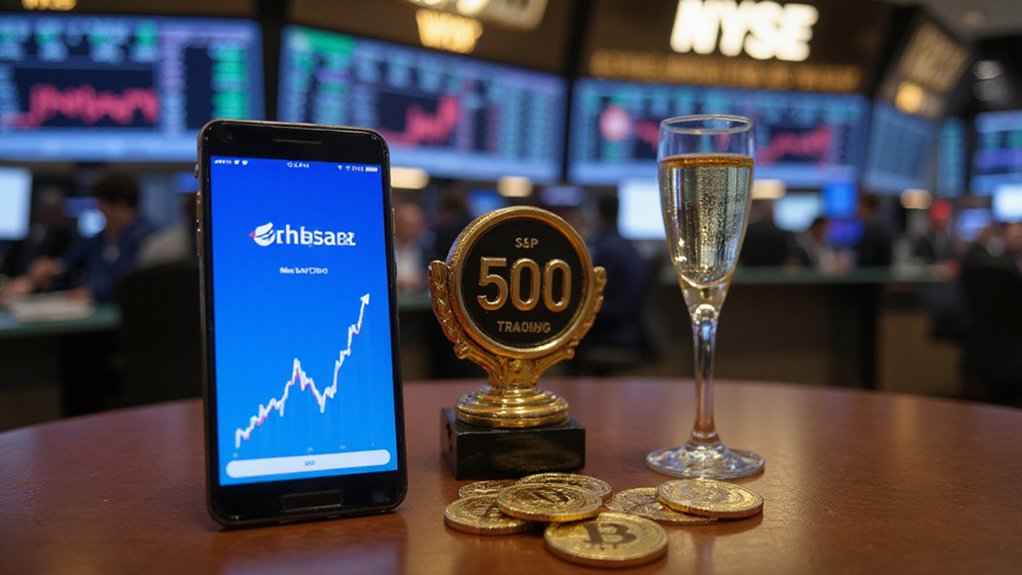While Bitcoin‘s journey from cryptographic curiosity to corporate treasury staple might have seemed improbable just a few years ago, the financial landscape of 2025 tells a decidedly different story. Public companies now hold over 673,897 BTC—approximately 3.2% of Bitcoin’s total supply—with 61 publicly listed corporations collectively amassing this digital treasure trove that would make Croesus envious.
The arithmetic alone suggests something fundamental has shifted in corporate finance. Total corporate Bitcoin holdings, including private firms, exceed 1 million BTC by mid-2025, surpassing the annual mined supply and creating what economists might politely term “interesting supply dynamics.”
Corporate adoption has accelerated dramatically, with Bitcoin-holding companies more than doubling from 64 in 2024 to 151 in 2025.
Corporate Bitcoin adoption has reached an inflection point, with institutional holdings more than doubling in a single year.
Michael Saylor’s MicroStrategy, with its average cost basis of $70,023 per Bitcoin, appears prescient compared to newer entrants. Between June 30 and July 4, 2025, 54 firms added 8,400 BTC to their treasuries in what became the year’s most frenzied institutional buying week.
Figma’s $69.5 million allocation (~843 BTC) exemplifies how non-financial tech companies are embracing Bitcoin as a core balance sheet asset rather than speculative holding.
The market’s response reveals familiar inefficiencies: approximately 58 of 61 corporate Bitcoin holders trade at net asset value multiples above 1, reflecting premium pricing that would make value investors wince.
This phenomenon occurs despite—or perhaps because of—Bitcoin’s volatility, with half these companies purchasing above $90,000 per BTC. The regulatory landscape shifted dramatically when the SEC’s spot Bitcoin ETFs approval in 2024 marked a turning point for institutional adoption.
What emerges is Bitcoin’s transformation from niche investment to mainstream treasury management strategy across Asia, the Middle East, and North America. Companies increasingly treat Bitcoin as a long-term store of value and inflation hedge, positioning it alongside traditional treasury assets with remarkable nonchalance. This corporate demand effectively absorbs over 6 years of new Bitcoin issuance, fundamentally altering the cryptocurrency’s supply-demand dynamics.
Yet risks lurk beneath this institutional enthusiasm. The concentration of corporate holdings creates potential selling pressure if market or regulatory conditions reverse. As corporations navigate this new asset class, many utilize established platforms with robust security protocols to manage their substantial Bitcoin holdings.
When companies like Amber International raise $25.5 million specifically for Bitcoin reserves, one wonders whether we’re witnessing prudent portfolio diversification or elaborate financial performance art.
The answer may ultimately determine whether Saylor’s bet represents visionary leadership or an expensive lesson in corporate hubris.









